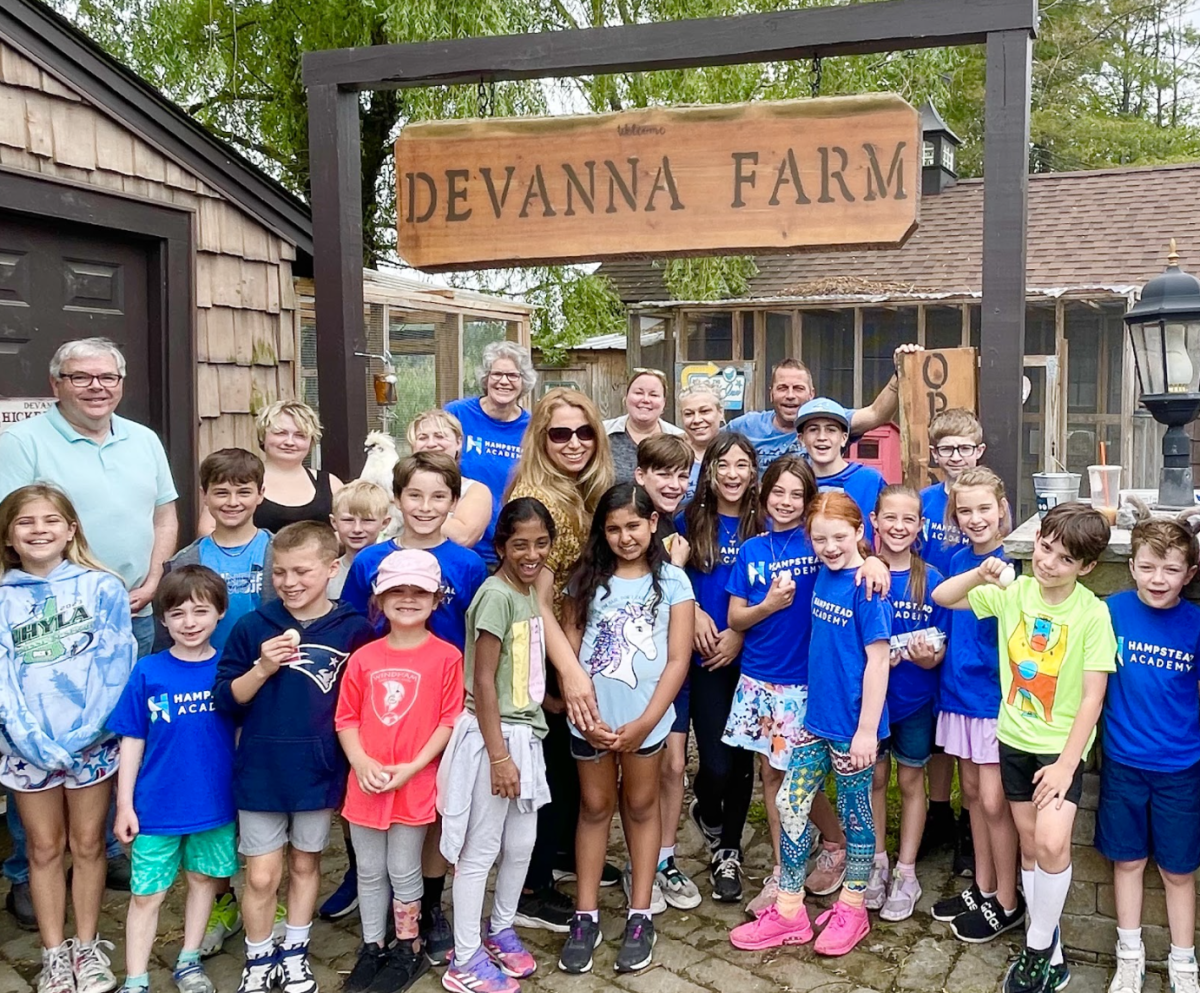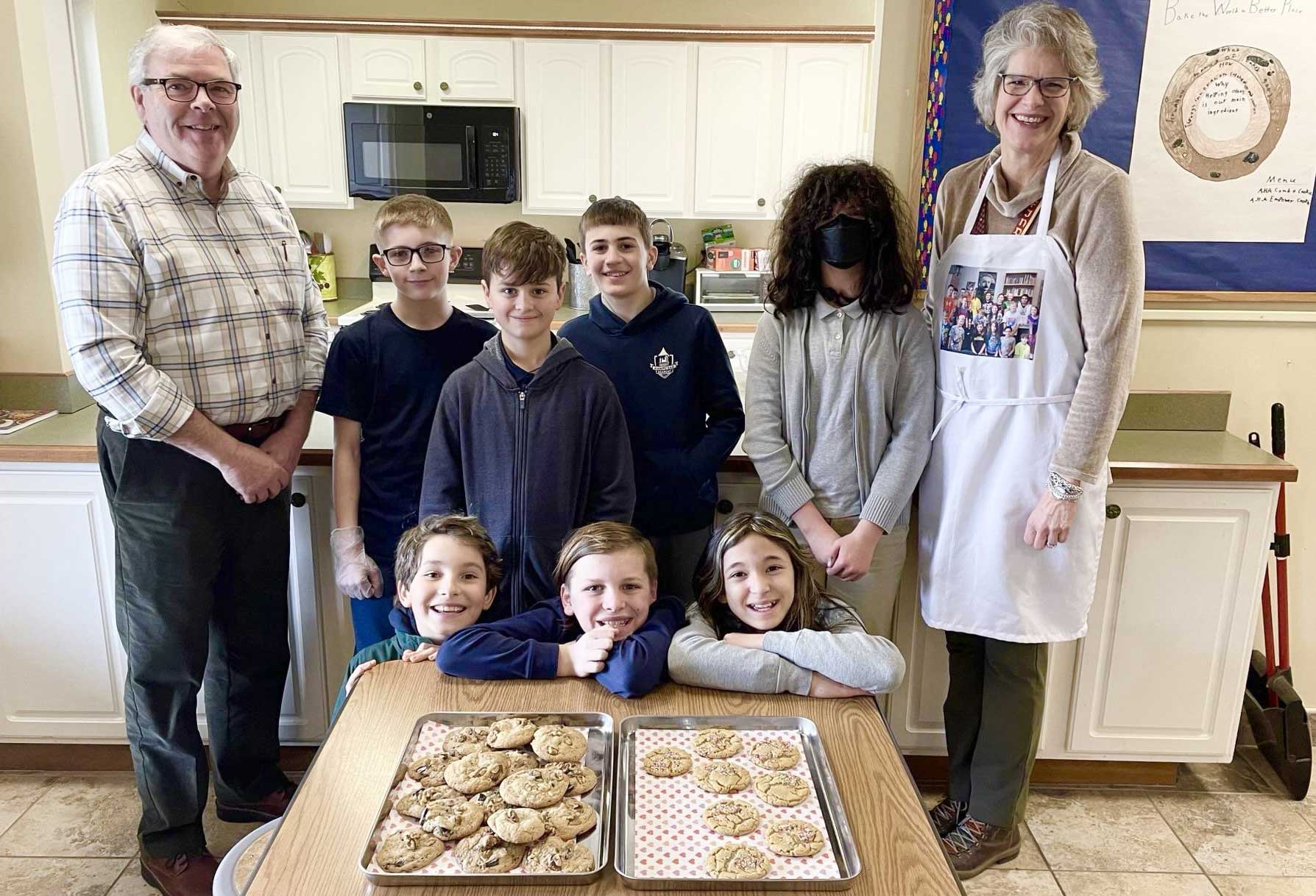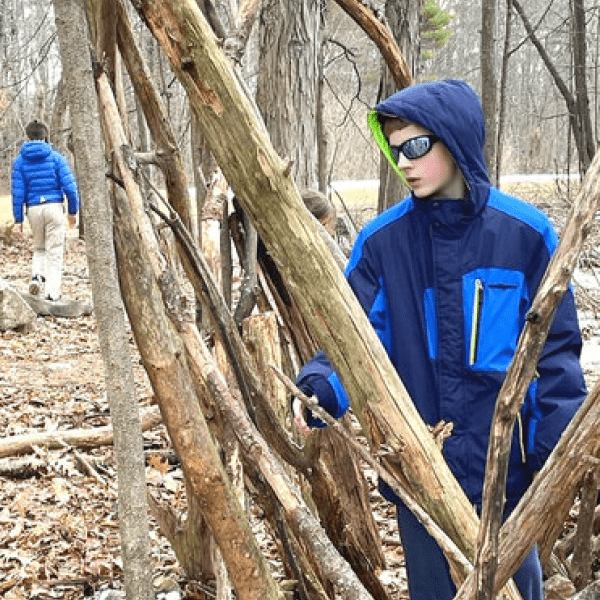
HATCHING SKILLS FOR THE FUTURE
JUNE 28th, 2023 • 3 MIN READ
Many of us have fond memories of hatching chicks at some point during our elementary school years. Rushing into the classroom each morning to see if any little balls of fluff had managed to peck their way out of their lamp-warmed shells, giggling with anticipation as we awaited our turn to nestle one of those living, breathing cotton balls gently in our hands. Student enthusiasm opens up a world of learning opportunities when it comes to an academic experience.
Through the hatching of chicks, students can learn about multiple academic disciplines from life sciences to math as well as build a base for larger sustainability projects planned for the next school year. For Hampstead Academy, the excitement of the hatching project spread school-wide as all became involved in the development of these little creatures.
Upper School Teacher, Rebecca Cummings, herself the owner of several prized chicken breeds, knew the value that hatching chickens had brought to classes before. More importantly, she realized that it offered a wonderful opportunity to demonstrate the value of the Internships & Apprenticeships IMPACT Pillar for every level of student at Hampstead Academy.
The Return of the Chicken Sisters
Rebecca asked two former students to mentor her Upper Class Hampstead Academy students through the project. Affectionately dubbed the “Chicken Sisters” the girls care for 80 chickens between them, including selectively breeding the stunning and rare Ayam Cemani of Indonesia.
“It started with the girls visiting our classroom with a few of the birds to give the students some background and the opportunity to interact with the animals,” explains Cummings. “The kids had many questions and were really engaged. It was clear from the beginning this project was going to be very exciting for all.”
Laying the Foundation with Research and Planning
In preparation to hatch their own chicks, the Upper School students conducted copious amounts of research into “all things chicken”. They researched the life cycle of a chicken, poultry evolutionary origins, and how different cultures and countries use chickens around the world. They investigated the industry of chickens — the different ways they could be raised, what it meant to be organic, how much it cost to raise chickens, why the price of eggs had recently skyrocketed, and were people really saving money by having their own backyard flocks. Upper School student research was distilled into presentations that they shared with the younger students, happily fielding questions about their newly found expertise.
The Lower School students were also diving deep into the world of chickens. The third graders conducted all the research, calculations, and purchasing of all the supplies needed to house and feed the chicks. The younger students spent lots of time developing their scientific observation skills by keeping science journals.
“All of our students were involved in journaling, but it was vital to encourage these emerging skills in our younger students and fascinating to see them develop,” adds Cummings. “One of the Kindergarteners was outside observing leaves moving and commented on how he could ‘see the wind.’ That’s the beginning of scientific observation!”
The Chicken Sister brought 12 eggs to the school for the students to hatch. They led the group through the process of candling the eggs to monitor the growth and development of the embryos and they explained how you could guess the sex of the chick by the shape of the egg. In the end, 5 of the 12 eggs hatched, a pretty decent result.
“And much to the delight of the students, one of the chicks was a Cemani,” says Cummings. “They were so excited not only because of how rare and beautiful the chick was, but because they knew how much it meant to the sisters.”
As the chicks quickly grew, the students journaled their development, marveling at how quickly the chicks shed their fluff and sprouted feathers. They discussed the benefits of composting and how to collect and use rainwater as they explored sustainable farming techniques.
The Magic of Mentoring










